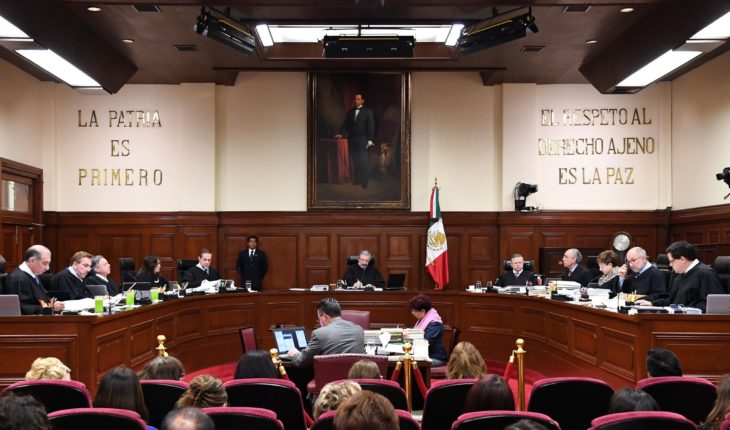Office in Mexico of the United Nations High Commissioner for human rights (UN-DH) held the decision of the Supreme Court of Justice of the nation (SCJN) of declaring unconstitutional the law of internal security (LSI).
The UN-DH, through its representative in Mexico, Jan Jarab, says that the decision of the Supreme Court “confirms the key role of the judiciary as an independent entity capable of guaranteeing human rights”.
Read: Court invalidated Safety Act by the risk that involves converting military into police qualified the decision as “a powerful message against the militarization of the security policy”.
This Thursday, with a vote of 9 Ministers in favor and one against, the Supreme Court said, in an official way, the unconstitutionality of the law on internal security, which was regulating the participation of the armed forces in public security tasks.
Although the Supreme Court consists of 11 ministers, 10 votes only joined because the Minister Margarita Luna Ramos had to leave the House prior to the vote, but previously had already announced his stance against the law.
The UN-DH says in favour of the decision because “the deployment of the armed forces of the last decade in the fight against crime has not brought security”, in counterpart, the Mexicans “have suffered violations to their human rights and abuses by actors State “it is and not state, including extrajudicial executions, torture and enforced disappearances”.
In addition to acknowledging the decision of the Supreme Court, the UN-DH highlights the work of other actors who also opposed the adoption of the law, such as: the NHRC, the National Institute of transparency, access to information and protection of personal data, the Commission Inter-American human rights and civil society organizations.
After this decision, there is the UN-DH, the State should adopt a plan that ensures the gradual, orderly and verifiable withdrawal of the armed forces of those tasks that are not specific to them.
In addition, the civil authorities must be “properly trained and strengthened, to assume its obligations in matters of public security, and comply with them in coherence with national and international human rights standards”, said Jan Warplanes.
The arguments of the Ministers to not endorse the security law were based on the intervention of the armed forces in public security tasks cannot be adjusted in this way. So LSI represented a violation of legal security for all.
They also highlighted the risk involving military become policemen when the Security Act does not require what kinds of specific actions could make the army, and left open the questions of whether the military can make arrests or searches, For example.
translated from Spanish: UN-DH welcomes decision of the Supreme Court on the unconstitutionality of the law of security
November 16, 2018 |





